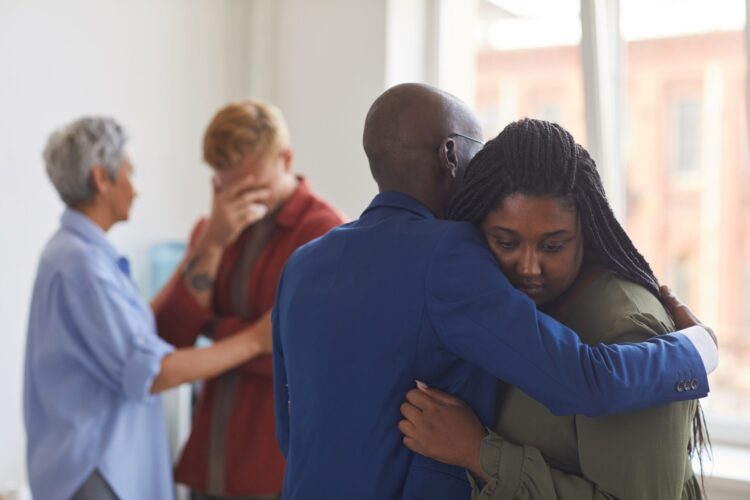Anxiety is just a normal part of life that everyone experiences. It’s when anxiety reaches a level that interferes with day-to-day functioning that it becomes a mental health disorder. The fact that anxiety is a part of life may be one reason why anxiety disorders often go undiagnosed. At Carolina Dunes Behavioral Health, we treat adolescents and seniors who are struggling with anxiety severe enough to be categorized as a disorder and require inpatient treatment.
Types of Anxiety Disorders
There are several different varieties of anxiety disorders. Some of the most common include:
- Persistent worry that is out of proportion to the situation/environment
- Overthinking plans and solutions
- Perceiving situations as threatening when they are not
- Difficulty with uncertainty
- Indecisiveness due to fear of making a wrong choice
- Difficulty focusing or a feeling of the mind going blank from stress
- Uncontrollable, recurring thoughts (obsessions)
- Obsessions often revolve around fears of germs, forgetting something important, losing control, or having forbidden thoughts, among other things
- Repetitive behaviors (compulsions)
- Compulsions frequently center on excessive hand washing, repeatedly checking things, arranging things in a specific manner, counting objects, or repeating words
- Some people only experience obsessions, some only experience compulsions, and some experience both
- Spontaneous panic attacks that occur seemingly out of the blue
- Preoccupation with preventing future panic attacks
- Panic attacks may awaken people while they are sleeping
- Sweating
- Shaking and trembling
- Difficulty breathing
- Feeling detached from oneself or like one’s experiences aren’t real
- Nightmares or flashbacks about a traumatic event
- Avoiding people, places, or things that remind them of the event
- Negative thoughts about themselves and other people
- Numbness and detachment
- Being easily startled
- Unhealthy coping mechanisms like smoking, drinking, or aggressive driving
- Intense fear of social situations such as public speaking, utilizing public transit, or placing an order at a restaurant
- Blushing
- Trembling
- Sweating
- Rapid heartbeat
- Dizziness
As with other mental health conditions, children and teenagers may exhibit additional or different symptoms from adults.
Causes of Anxiety Disorders
Anyone can experience anxiety, but women are more likely than men to develop anxiety disorders. Multiple factors can contribute to anxiety disorders some of which include:
- Traumatic events
- Serious medical conditions
- Stressful life situations
- A personality type that is generally more anxious
- Genetics
- Substance use
Negative Outcomes from Anxiety
People who live with untreated anxiety are also more susceptible than other people to experiencing other difficult conditions, such as:
- Depression
- Sleep disturbances
- Digestive issues
- Headaches and other chronic pain
- Isolation
- Suicidal thoughts
Treatment Options for Anxiety Disorders
Most anxiety disorders are treated with therapy, medications, or a combination of the two. Anti-anxiety meds may be prescribed. Antidepressants can also help, even when the person does not have depression, because they can help the brain make better use of chemicals that control mood and stress. Beta-blockers are also commonly used to treat the physical symptoms of anxiety, like rapid heartbeat, trembling, and shaking. Because people with anxiety are at increased risk for other mental and physical health conditions, it is important that these diagnoses also be treated for the maximum possible benefit.
Things to Avoid
People with anxiety should try to avoid caffeine, alcohol, and illicit drugs, which can make their symptoms worse.
Getting Help
Some medical conditions can mimic the symptoms of anxiety, so meeting with a primary care doctor can rule out medical causes of symptoms and provide a referral for mental health assessment. People who get help for mental health disorders early find it easier to recover, so seeking professional support quickly is key.
Self-Help for Anxiety
There are several steps that people with anxiety can take to manage their symptoms. These include:
- Staying involved with social relationships and enjoyable activities
- Joining support groups
- Learning stress management techniques like deep breathing, visualization, meditation, and yoga
- Exercising regularly
- Prioritizing good sleep
- Eating a healthy, well-balanced diet
At Carolina Dunes Behavioral Health in Leland, North Carolina, we specialize in helping adolescents, seniors, and their families find new ways to live fulfilling lives after an anxiety diagnosis. Our trauma-informed approach and evidence-based practices make us a great choice for compassionate inpatient care.






